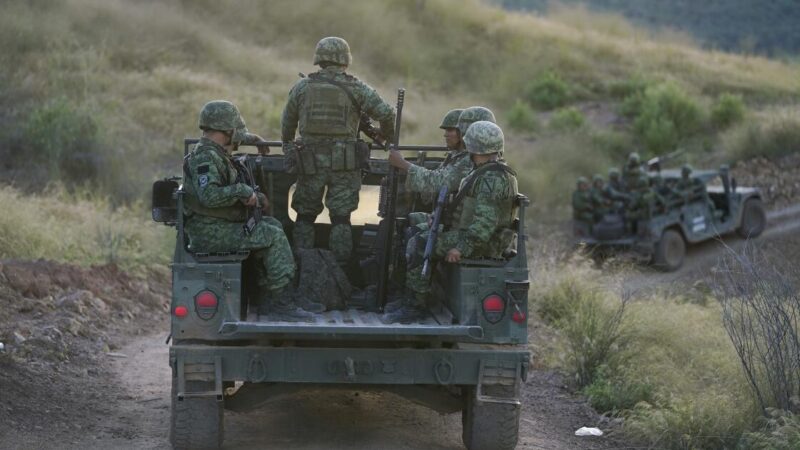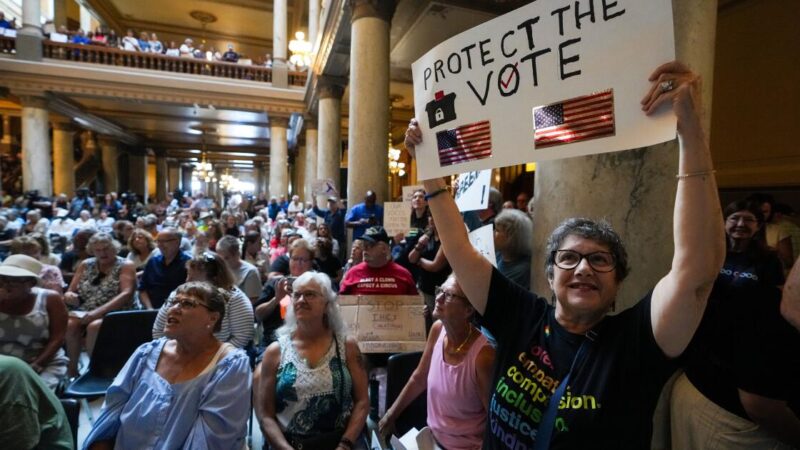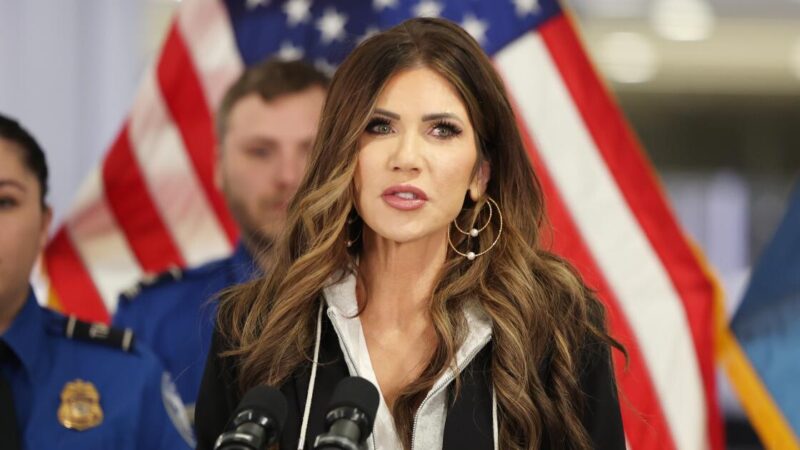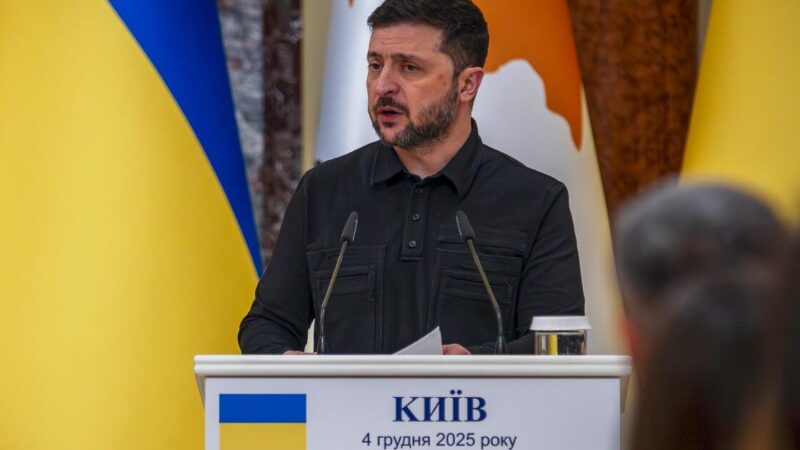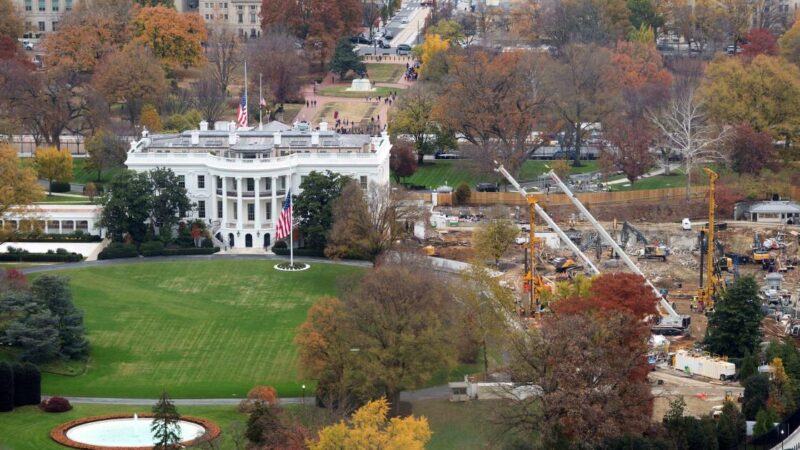Contributor: Trump’s idea to rename Veterans Day fizzled for good reason
Amid the daily cacophony of crises and cruelty, the renaming continues. Perhaps you’ve noticed? As soon as he stepped back into the Oval Office, the president renamed the Gulf of Mexico and Denali. And the administration insists that the Persian Gulf be called the Arabian Gulf. On his first day as secretary of Defense, Pete Hegseth renamed North Carolina’s Fort Liberty back to Fort Bragg. Now Hegseth himself has a new title: secretary of War.
Thankfully, these efforts don’t always work. When the president proposed renaming Veterans Day as “Victory Day for World War I,” veterans’ groups objected. Rather than focus on military victory or a single conquest, they reminded him (and all of us) that Veterans Day is meant to honor all who have served and sacrificed. The president’s feint at renaming Veterans Day proved so unpopular that it fizzled away. But other renamings ensued.
It would be comical, this scrubbing and dubbing of names within and beyond the president’s dominion, if it weren’t so grotesque.
As an anthropologist, I have studied and taught about many kinds of naming practices. All human societies name. We name people, places and things. Naming practices have long intrigued anthropologists because of their simultaneous universality and their breathtaking diversity. How a society names can tell us a lot about the concepts, attitudes and values that define it.
For instance, among Jola villagers on the West African coast, where I have conducted ethnographic research, one of my closest friends is named Sipalunto — a lovely name made of syllabic hints that, when deciphered, mean “a hippopotamus crossed there.” This would be unintelligible unless you know the backstory: Sipalunto’s mother overheard some spiteful gossip in a rice paddy that hippopotamuses had recently ravaged and most people were avoiding. The gossipers thought they were safely out of earshot, but their breach was captured and preserved in Sipalunto’s name.
Almost every Jola name carries within it a story about a social faux pas. These scraps of oral history add up to an archive of past offenses against Jola notions of proper behavior, all encoded in personal names. Such lyrical and suggestive names do political work as their daily repetition recalls an indiscretion and reminds listeners of shared social and moral codes. A rebuke gently wrapped in a child’s name offers a kind of gracious politics of nonconfrontational remediation, something akin to what the theologian-philosopher Ivan Illich called “tools for conviviality.”
Another riff on this approach can be found in Western Apache placenames, as discussed in anthropologist Keith Basso’s masterful “Wisdom Sits in Places.” A meadow called “crescent moon camp,” a mountain called “white rocks lie above in a compact cluster.” These names describe physical features but also allude to something that happened there. “All these places have stories,” Basso was told. And these stories are “spatially anchored” morality tales. Their plot might involve what happened when someone killed a cow, but each is ultimately about “the system of rules and values according to which Apaches expect each other to organize and regulate their lives.” Apache place names also do subtle social and political work. Rather than publicly embarrassing anyone for improper behavior, the carefully named landscape prompts people to reflect on their misconduct and try to mend it.
Because names can be so powerful, efforts to change them are also revealing. All U.S. presidential administrations have done their share of naming and renaming. Beyond executive decrees there are countless instances across multiple political camps to reevaluate — and often remove — the names of buildings, monuments, institutions, streets, cities and even each other. In the town where I live almost half of the public schools have been renamed since I moved there a decade ago. We should continue to consider whom we honor as a namesake based on newly revealed information, changed understandings and transformed sensibilities. And it matters how we do so.
There’s a difference between the examples I have offered and the efforts of the current administration to rename mountains, seas and holidays. In the last century, most efforts to rename — whether landmarks, army bases or schools — were deliberative and relatively participatory processes. They often involved public debates, collective decision-making and ample consideration. The Alaska Legislature asked the federal government in 1975 to refer to the highest mountain in North America as Denali, as Native Alaskans call it; in 2015, the Obama administration obliged.
By contrast, the current president acted swiftly and unilaterally, vowing in December 2024 to revert to calling the mountain McKinley and doing so when he was sworn in a month later with an executive order titled “Restoring Names That Honor American Greatness.” But even beyond the despotic tactics that are this president’s trademark style, his approach fulfills the worst potential of the power to name.
There are, of course, countless other examples — both historical and imaginary — of names being used as instruments of control. Nazis renamed Jews whose personal names were not obviously Jewish, ultimately replacing even these with tattooed numbers. In Margaret Atwood’s fictional dystopian future,“The Handmaid’s Tale,” handmaids are stripped of their names and renamed as possessions of their commanders: Offred, Ofwarren, Ofglen.
But it can be otherwise. Unlike brutal assertions of dominance, the coded meanings in Jola personal names and the allusive stories in Apache placenames are gentle invitations: to learn the backstory, tell the tale, reflect on the moral. Naming, at its best, at its most human and humane, is a delicate and evocative affair. It elicits curiosity, reflection and interpretation in order to nurture shared communal goals.
Bluntly mandating unsubtle name changes shows the opposite approach. It is anti-creative. It uses names to contain, constrain and dictate. Rather than obliquely encouraging prosocial behavior, this mode of renaming denudes history and humanity.
Among myriad other things to be vigilant about these days, we need to pay attention to names. Like so many of its other actions, this administration’s approach to naming distorts and deforms a fundamental human act. It represents the basest version of our uniquely human power to name. That is not an Edenic beginning; it’s the beginning of the end.
Joanna Davidson is an associate professor of anthropology at Boston University.
